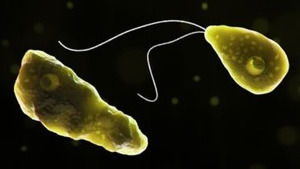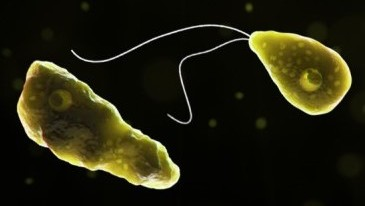

New Delhi, Sep 18 (IANS) Exposure to contaminated water is a major reason for infection from a brain-eating amoeba that has claimed the lives of 19 people, including children as young as three years old, in Kerala, said doctors calling for avoiding swimming in lakes and other water bodies.
Amoebic meningitisis a rare but fatal central nervous system infection caused by free-living amoebae, Naegleria fowleri, also known as the brain-eating amoeba, found in freshwater, lakes, and rivers.
Kerala has recorded 61 confirmed cases of the brain infection, and 19 deaths, among patients ranging from a three-month-old infant to a 91-year-old.
“The amoebiosis or amoebic meningitis is a rare disease, which is very difficult to diagnose. It is one of the Acute Encephalitis Syndrome (AES), where the diagnosis is very difficult. There are no dedicated diagnostic techniques used almost all over the world to detect the condition,” Dr TS Anish, Professor and nodal officer, Kerala One Health Centre for Nipah Research and Resilience in Kozhikode Government Medical College, told IANS.
However, the Nipah outbreak led to the development of a dedicated system that can diagnose as many AES cases as possible. It demonstrated an increase in the cases of amoebic meningitis, the expert said.
He blamed global warming and climate change for the rise in the number of infections.
“Thermophilic organisms will definitely grow when the temperature of water bodies increases. And there are pollution issues in our water bodies,” Anish said.
The expert also informed that “the death rate due to the disease is low in Kerala; it is one of the lowest rates in amoebic meningitis reported all over the world”.
“Amoebic meningitis caused by Naegleria fowleri amoeba has a global death rate of somewhere around 97 to 98 per cent. Any type of amoebic meningitis has a high death rate, maybe up to 60 to 70 per cent, but in Kerala it is almost only 20 per cent. That may be because of the early detection,” Anish said.
Neurologist Dr. Anshu Rohatgi from a leading city-based hospital linked the outbreak of the disease to “rapid urbanisation, swimming in water which has not been disinfected or not been chlorinated”.
“This Naegleria fowleri amoeba enters through the nasal spaces, nasal airways, and it goes into the brain, and it causes an amoebic meningoencephalitis,” he said.
According to the health experts, the condition is completely treatable and curable if detected early.
“This meningoencephalitis, if it is not treated, has a 100 per cent fatality. But, in Kerala, because there is a high index of suspicion, more and more cases are being diagnosed early,” added Rohatgi.
Rohatgi noted that the important point in identifying the infection is to do a lumbar puncture or a CSF (Cerebrospinal Fluid) examination -- a medical procedure in which a needle is inserted into the spinal canal.
Further, Anish said that "the disease is not that rare, but it is very rarely diagnosed in most parts of India".
He cited a study conducted at the Postgraduate Institute of Medical Education and Research (PGIMER) in Chandigarh between 2014 and 2022, which investigated amoebic meningitis in a sample of 156 patients with suspected meningoencephalitis.
Free-living amoebae (FLA) were detected by PCR in 11 of the 156 patient samples.
Anish explained that people with a history of CSF rhinorrhoea, where fluid that normally surrounds the brain leaks through the nose, could be vulnerable to the disease. People who underwent some surgical procedures in the brain or skull could also be at risk.
The experts noted that the infection does not spread from person to person. Swallowing water containing the amoeba does not lead to it either. They urged people to avoid swimming in ponds or in rivers that are likely to be polluted. They also suggested avoiding rinsing the nostrils with water which is not boiled.
--IANS
rvt/